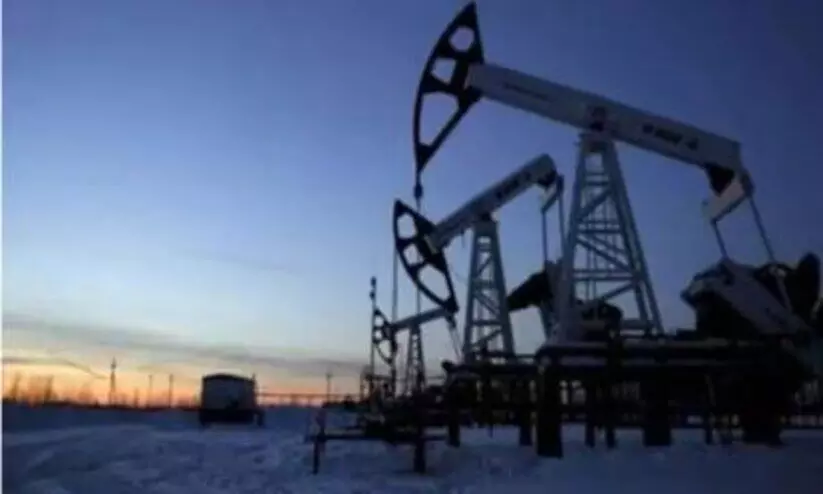
As Middle East ceasefire hopes wane, oil prices surge
text_fieldsPhoto: Reuters
An increase in oil prices was seen on Tuesday as expectations that talks between Israel and Hamas would result in a truce in Gaza faded amid worries that the ongoing fighting may affect supplies from the vital oil-producing Middle East region.
By 0610 GMT, Brent crude futures had increased by 14 cents to $90.52 per barrel. West Texas Intermediate (WTI) crude for the United States was up 10 cents at $86.53.
On Monday, a multi-session rally came to an end with a new round of Israel-Hamas ceasefire talks in Cairo. This gave rise to the possibility that geopolitical risks could lessen, which caused Brent to decrease for the first time in five sessions and WTI to decline for the first time in seven.
However, Israeli Prime Minister Benjamin Netanyahu announced on Monday that Israel had decided to invade the Gazan enclave of Rafah at an unspecified time.
That is “ending the hopes that briefly gripped the market yesterday that geopolitical tensions in the region might be easing,” Tony Sycamore, a market analyst with IG, wrote in a note, Reuters reported.
Early on Tuesday, Hamas declared that the Israeli proposal it had received from mediators in Qatar and Egypt did not satisfy any of the demands made by Palestinian factions. However, Hamas stated that it would review the proposal before getting back to the mediators.
If the battle continues, there is a greater chance that it will affect other nations in the area, particularly Iran, which is the third-largest producer in the Organisation of the Petroleum Exporting Countries (OPEC) and a key supporter of Hamas.
According to ANZ analysts' client note, an Iranian reaction to Israel's alleged attack on its consulate in Syria last week "could drag the oil market into the conflict, after being largely unimpacted since Hamas’s attack on Israel."
Although Israel has not acknowledged carrying out the attack, Tehran declared it would exact retaliation after an airstrike near Damascus killed two of its generals and five military advisors.
“The positive geopolitical risk premium is indeed supporting the current medium-term uptrend phase of oil,” said Kelvin Wong, a senior market analyst at OANDA in Singapore.
Additionally, the ANZ analysts stated that prices are supported by broader fundamentals. According to figures released on Monday, India's fuel demand reached a record high in the fiscal year 2024 due to the increased use of petrol and jet fuel. Fuel demand is also anticipated to increase following the announcement last week of an improvement in Chinese manufacturing activity.
The market will be studying this week's inflation data from China and the United States for additional clues about the economic trajectory of the two largest oil consumers in the world.
Mexico's state oil company Pemex announced that it would lower its crude exports by 330,000 barrels per day to increase its supply to local refineries. This would result in a one-third reduction in the amount of crude available to Pemex's buyers in the United States, Europe, and Asia.























